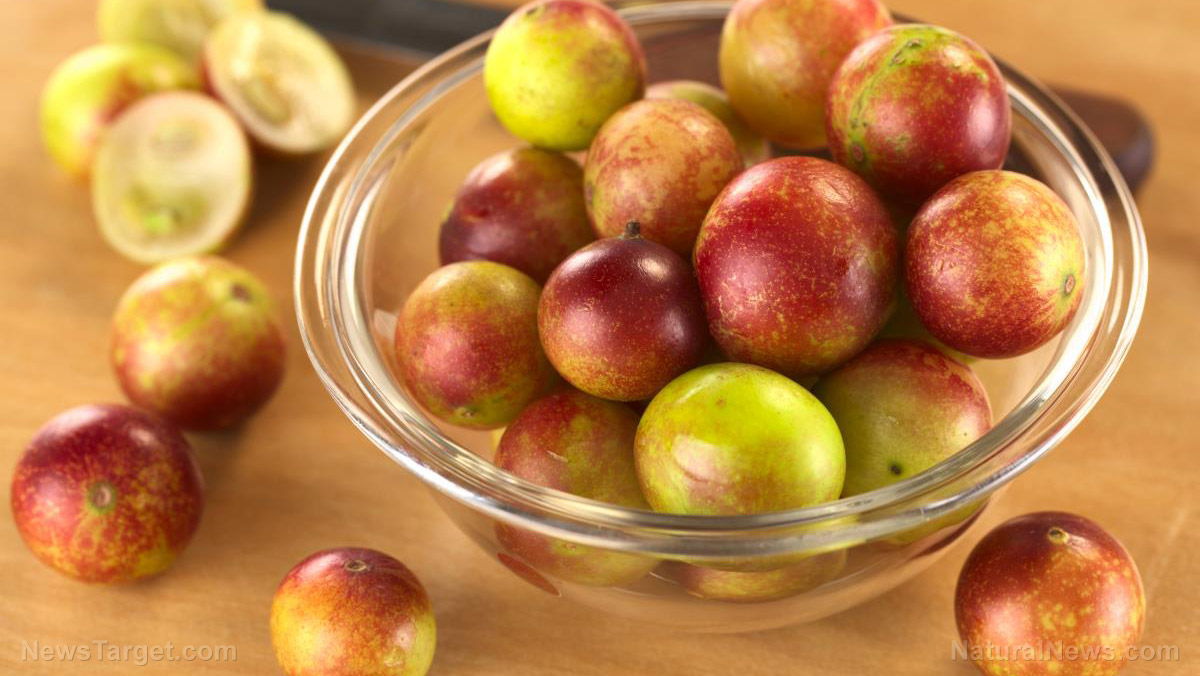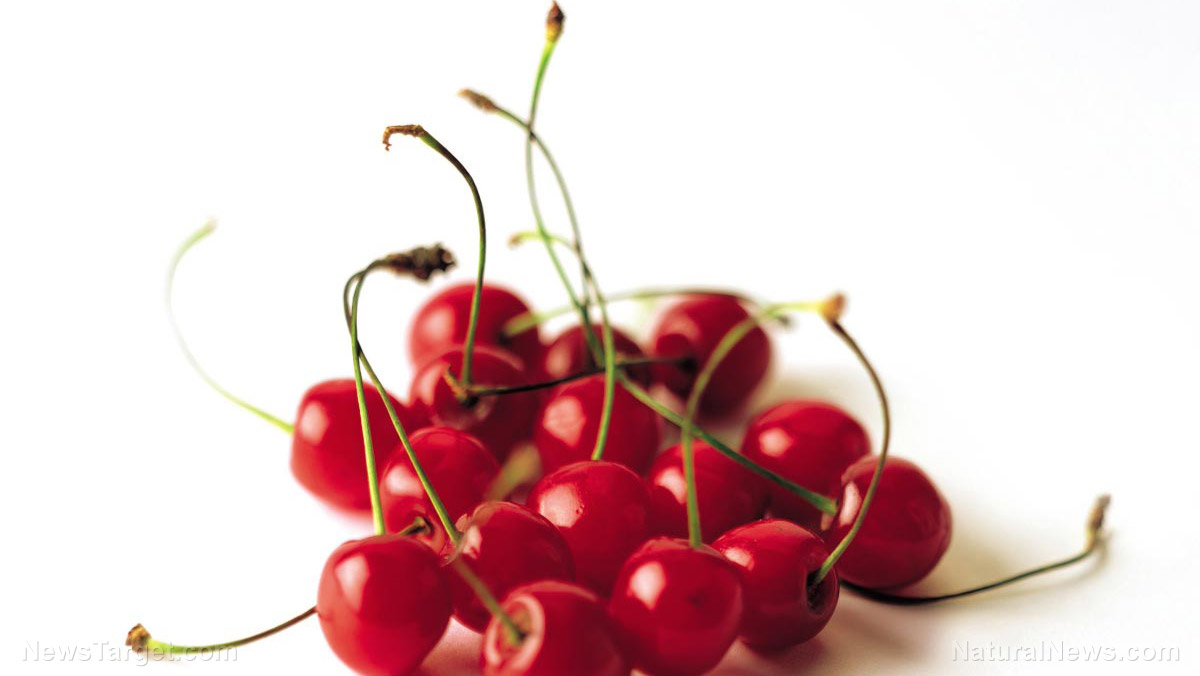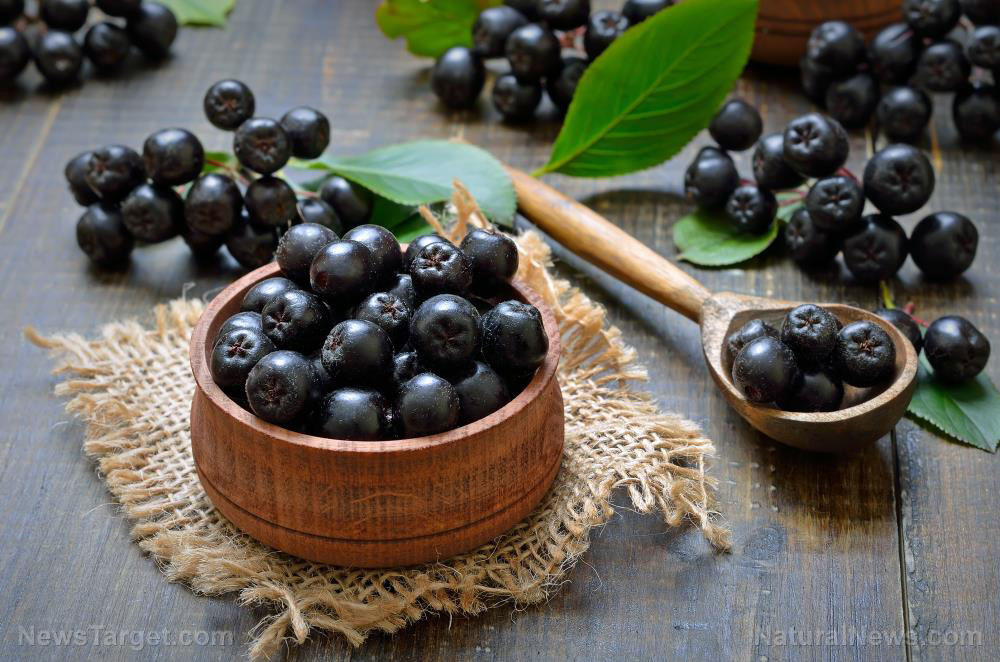Study: Exotic fruit camu camu can help speed up metabolism and improve gut health
07/14/2022 / By Rose Lidell

A recent study has found that camu camu (Myrciaria dubia), an exotic fruit from the Amazon rainforest, can help speed up metabolism and reduce weight gain. The study results were published in the journal Gut.
The research team believes that camu camu can be used to help prevent obesity and Type 2 diabetes. However, since the study was based on the findings of animal studies, more research will be required to support this theory.
Camu camu is a nutritional powerhouse that can positively influence gut bacteria. The fruit is rich in polyphenols or compounds that can benefit health.
Studies also suggest that polyphenols can help reduce weight and improve insulin resistance.
Camu camu extract and weight loss
For this study, scientists from the Laval University‘s Faculty of Medicine in Canada wanted to learn more about the benefits of camu camu.
The Laval trial involved two groups of mice that were fed a high-calorie, high-sugar diet for eight weeks. Half of the animal subjects were also given camu camu extract every day over the course of the study.
The results revealed that the mice that received the camu camu extract gained 50 percent less weight than the group that did not receive the extract. There were also significant improvements in insulin resistance, blood sugar levels and gut inflammation in the camu camu group.
Experts believe the vitamin C-rich superfruit can help boost metabolism even during rest periods, which is why it can potentially be used to promote weight loss.
According to Dr. Andre Marette, one of the study authors, the consumption of fruits is often linked to “better health and higher bacterial diversity in the gut microbiota.” She added that camu camu is one such fruit because it has “a unique phytochemical profile, strong antioxidant potential and purported anti-inflammatory potential.”
However, it’s worth noting that fruit can be a tricky dietary element for those who are at risk of diabetes or those who have already been diagnosed with diabetes.
Because some fruits contain more sugar than others, moderation is necessary when eating higher carb fruits.
Camu camu, a superfruit powerhouse
Camu camu is full of beneficial antioxidants and it contains a whopping 20 to 30 times more vitamin C per 100 g than kiwi fruit. Camu camu is a sour berry and it is similar to cherries in color. The fruit is native to the Amazon rainforest, but it has become more popular across the globe because it has many health benefits.
Fresh camu camu berries are tart so they are usually found in supplement form as powders, pills or juice. Camu camu is a superfood rich in different nutrients and powerful plant compounds such as vitamin C.
Camu camu is full of vitamin C
Camu camu is chock-full of vitamin C, an essential nutrient with many important bodily functions.
Vitamin C can help boost your immune system. You also need the vitamin for the formation of collagen, a protein that supports your bones, muscles and skin.
Additionally, vitamin C is a potent antioxidant that helps protect your cells from unstable molecules called free radicals. While free radicals are a normal byproduct of cellular function, too many can be formed due to a poor diet, stress and exposure to pollution.
When free radicals outnumber the antioxidants in your body, it can cause oxidative stress which has been linked to chronic conditions like diabetes, heart disease and cancer.
Fortunately, eating superfoods full of antioxidants like vitamin C can help prevent oxidative stress and protect you from free radical damage.
Data suggests that camu camu contains at least three grams of vitamin C per 3.5 ounces (100 grams) of fruit.
Because camu camu powder has had its water content removed, it contains more vitamin C per gram compared to fresh berries.
According to product nutrition labels, camu camu powder can deliver up to a whopping 750 percent of the Reference Daily Intake (RDI) of vitamin C per teaspoon (five grams).
Camu camu is full of potent antioxidants
Camu camu has impressive antioxidant properties and is full of vitamin C and various potent compounds, such as flavonoid antioxidants like anthocyanins and ellagic acid.
Antioxidants are substances that protect cells from free radical damage. The high antioxidant content of camu camu may benefit those who smoke cigarettes since smoking creates excessive amounts of free radicals that then cause oxidative stress.
According to data from a one-week study in 20 male smokers, participants who drank 0.3 cups (70 ml) of camu camu juice containing 1,050 mg of vitamin C daily had significantly lowered oxidative stress and inflammatory markers like C-reactive protein (CRP).
The researchers also reported that there were no changes in these markers in the placebo group who received a vitamin C tablet. This suggests that the combination of other antioxidants from the camu camu berries had more powerful antioxidant effects than vitamin C alone.
Go to Fruits.news to read more articles about nutritious fruits that can help promote weight loss.
Watch the video below about the five health benefits of camu camu.
This video is from the Health Ranger Store channel on Brighteon.com.
More related stories:
Camu camu fruits are rich in an anthocyanin that stops tumors from growing.
Camu camu found to speed up metabolism and reduce weight gain.
Camu Camu: What you need to know about the most potent food source of vitamin C on the planet.
Sources include:
Submit a correction >>
Tagged Under:
alternative medicine, anthocyanin, Camu camu, herbal medicine, Herbs, medicinal plants, Myrciaria dubia, natural cures, natural healing, natural medicine, natural remedies, nutrients, recipes, slender, Type 2 Diabetes, weight loss
This article may contain statements that reflect the opinion of the author
RECENT NEWS & ARTICLES
COPYRIGHT © 2017 PREVENTDIABETES.NEWS
All content posted on this site is protected under Free Speech. PreventDiabetes.news is not responsible for content written by contributing authors. The information on this site is provided for educational and entertainment purposes only. It is not intended as a substitute for professional advice of any kind. PreventDiabetes.news assumes no responsibility for the use or misuse of this material. All trademarks, registered trademarks and service marks mentioned on this site are the property of their respective owners.




















